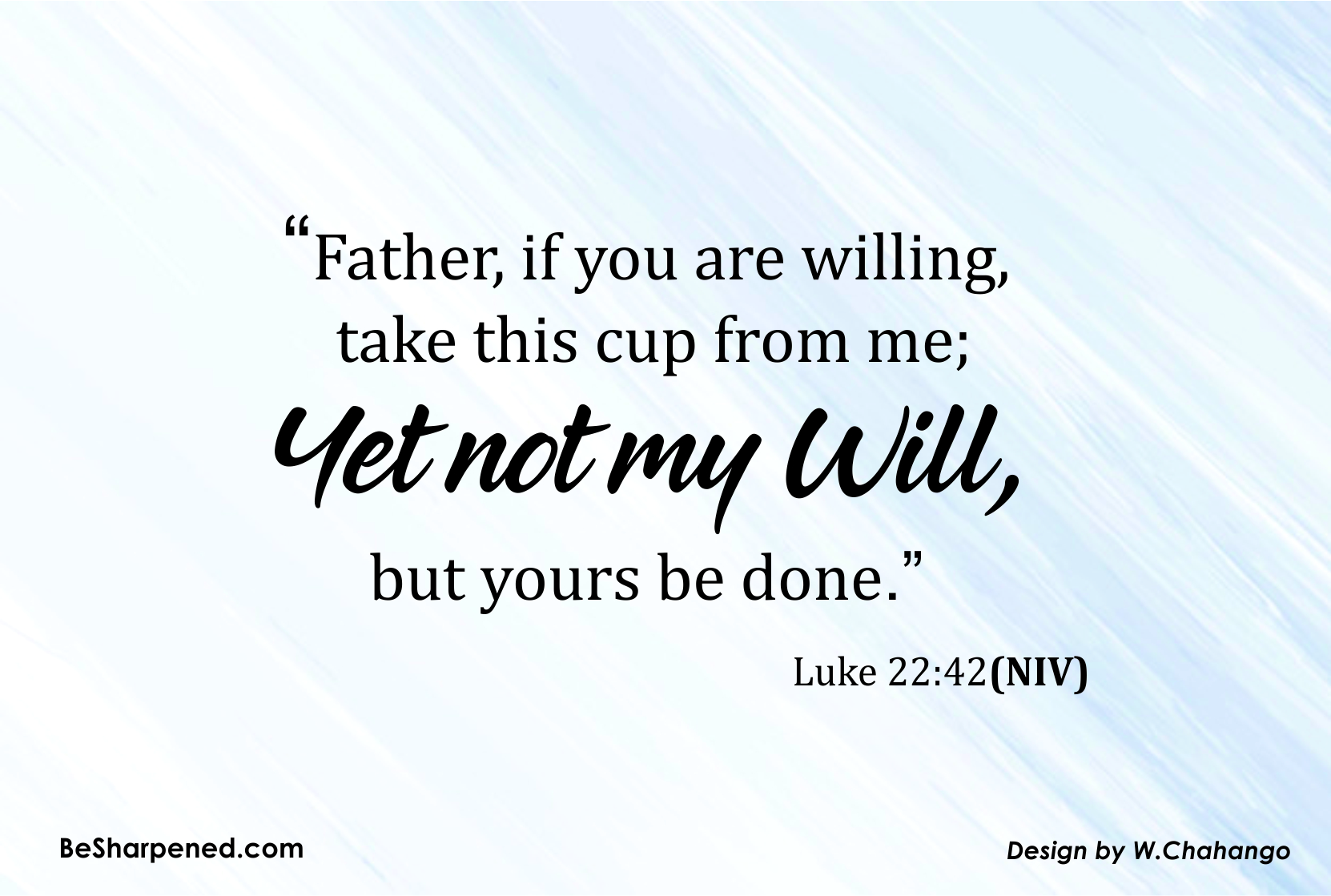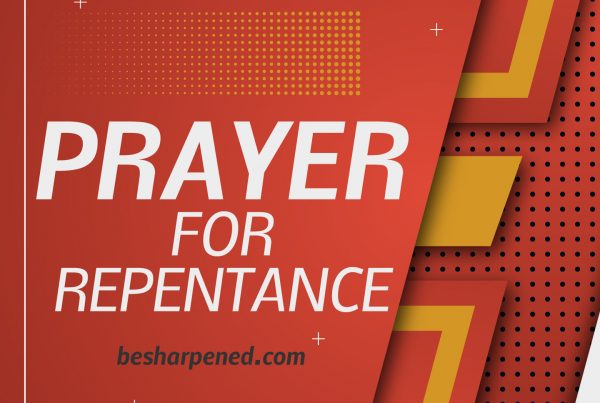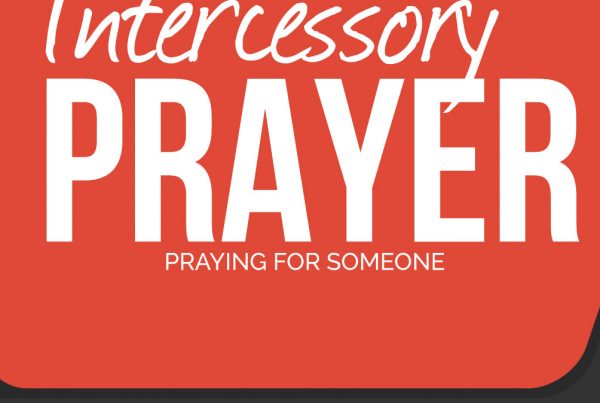”39 And he came out and went, as was his custom, to the Mount of Olives, and the disciples followed him. 40 And when he came to the place, he said to them, “Pray that you may not enter into temptation.” 41 And he withdrew from them about a stone's throw, and knelt down and prayed, 42 saying, “Father, if you are willing, remove this cup from me. Nevertheless, not my will, but yours, be done.” 43 And there appeared to him an angel from heaven, strengthening him. 44 And being in agony he prayed more earnestly; and his sweat became like great drops of blood falling down to the ground. 45 And when he rose from prayer, he came to the disciples and found them sleeping for sorrow, 46 and he said to them, “Why are you sleeping? Rise and pray that you may not enter into temptation.”
Luke 22:39-46New International Version (NIV)
V ibia Perpetua was the perfect embodiment of “may your will be done in my life”. This was a young woman of noble birth in the North African city of Carthage (located in modern-day Tunis in Tunisia). She was twenty-two, a wife, a mother to a young son (infant) and a new believer.
Perpetua, a young Christian, was nearing the end of the time of training that every new believer received. She and several other new believers were preparing for baptism. But the group’s training was cut short when the Roman authorities of the province arrested them for refusing to worship the empire’s deities. They were imprisoned to await trial. She kept her baby with her.
I am a Christian
Soon after their arrest, Perpetua’s father, a pagan, visited her. Knowing the danger to his daughter, he tried to convince her to turn away from her faith. She responded by pointing to some pottery in her cell. “Father, do you see this container lying here? Is it a little pitcher, or is it something else?”
“It’s a pitcher,” he replied.
She continued, “Can it be called by any name other than what it is?”
“No,” he said.
Perpetua replied, “Neither can I call myself anything else than what I am – a Christian.” Her father flew into a rage and attacked her physically. When he finally left, Perpetua gave thanks to God.
At that time, the prisoners were baptized in the prison and welcomed into the full community of the Christians. Perpetua’s baptism was a deep source of encouragement for her.
Sometime later, nearly worn out with anxiety, but having regained some measure of composure, Perpetua’s father came again to visit her.
“Have pity on your father,” he said, “if I am worthy for you to call me father. Don’t make me a subject of scorn. Think about your son too. He can’t live without you.”
Let God’s Will take place
He kissed her hand, fell to the ground, and wept. Perpetua grieved too, but for a different reason. Out of her whole family, only he could not rejoice over her commitment to Christ. She was resolute and comforted him, saying: ‘In this trial what God determines will take place. We are not in our own keeping, but in God’s.’ So he left her – weeping bitterly and taking her son with him.
Later on, the captives were brought to the town hall for public interrogation, and a crowd soon gathered. They were questioned one by one.
When Perpetua’s turn came, her father stepped to the front of the crowd, holding her infant son. “Have pity on your baby!” he cried.
The procurator in charge commanded Perpetua to “offer sacrifice for the well-being of the emperors.”
“I will not,” Perpetua answered.
“Are you a Christian?” he asked.
“I am,” she replied.
Perpetua’s persecution, Our Encouragement
The procurator ordered Perpetua’s father to be beaten with rods, even though the elderly man had come to convince her to abandon Christianity. Perpetua watched, horrified, as the brutal command was carried out. Finally, the procurator condemned the prisoners to be thrown into an arena with wild beasts at the upcoming birthday celebration of the emperor’s son.
In the camp prison, the Christians found various ways to pass their final days. Perpetua chronicled their captivity in a diary, an account which would eventually be used to encourage others.
Finally, on March 7 203, Perpetua and her four companions were led to the arena where the crowd demanded they be scourged. Then a boar, a bear and a leopard were loosened upon the men while the women were attacked by a wild bull.
While Perpetua and her fellow female believer were tossed and gored by a bull, Perpetua seemed unconcerned with the brutal animal – according to witnesses, she seemed to be in a trance. She just carefully bound up her disheveled hair. She could scarcely be induced to believe that she had suffered, in spite of the marks on her body.
Confirmation of God’s Will
Despite the cruel manglings, they survived. They were gathered together with other surviving Christians. They gave each other the kiss of peace one last time. They also exhorted the others to ‘stand fast in the faith and love one another’. Then each of them was stabbed with a sword.
But Perpetua, stabbed between the ribs by a novice gladiator whose hand was shaking, did not die. She cried out loudly, grabbed the gladiator’s sword hand, and guided the blade to her own throat. In this way she embraced her death.
The Prayer of Jesus
Jesus offered six (6) prayers that are recorded in the Bible. Out of these, a high degree of importance is attributed to prayer at the Mount of Olives. This is because it was his last prayer before his arrest and the words he used in it clearly indicate his human nature. Particularly the words “not my will, but yours, be done”. These words also mark the climax of his prayer.
Can you fulfill God’s will even at the point of death? Can you trust God’s will in the midst of a mountainous challenge or situation? Jesus, through his life, is challenging us to not only fulfill, but to trust in God’s will.
The Frequency, Place, Privacy and Posture of Prayer
The Frequency of Prayer
Jesus not only taught his disciples to pray, he also showed them how to do it with his life and ministry. He taught them to pray as often as they could. And Paul adds that we ought to pray in every situation (Philippians 4:5-7).
The Place and Privacy of Prayer
He also taught them the importance of designating a place for private prayers (Matthew 6:6). The important thing to God is not where you pray, but that you pray. Personally, having a set place to pray has worked very well in my devotional (prayer) life. Such a place will help you in your commitment to praying (without ceasing – 1 Thessalonians 5:17). It will also help keep your prayer sessions private (disturbance-free). This will in turn help you to easily and clearly hear from God.
The Posture of Prayer
I have no doubt that our bodies do express or reflect that which is in our hearts. However, I do declare that nowhere does the Bible command us to set our bodies in a given position or another during prayer. However it does describe a variety of positions that you may find useful in your prayers.
Apart from Jesus, the Bible does mention several people who knelt during prayer. Some of these are Daniel (Daniel 6:10) and Stephen (Acts 7:60). So kneeling is a very natural posture for the Christian when he/she is praying to God.
Kneeling is a sign of humility and a sign of dependence. When a person kneels in the presence of a king or queen, he/she does so as a sign of his dependence to that person. It is difficult to be proud when kneeling before another. It is therefore very natural to kneel when you take petitions to God (Psalm 95:6). This is an acknowledgement of God’s superiority and your utter dependence on him.
In addition, unlike a public place, a private place grants you the opportunity to kneel (and even weep!). It also grants you the opportunity to be armed with a Bible, a notebook and a pen; and also pin photos and prayer requests. It is in such a place that you can go deeper, loose yourself or lose track of time and wrestle with the Creator mano a mano.
Remember, what matters most is not the place itself. What matters is that the place helps you to be able to pay full attention to the most important aspect of your relationship with God – intimacy. In any case, intimacy is a private affair (no pun intended!).
May your will be done in my life
Why is it so crucial to pray “not my will, but yours, be done”, just like Jesus did? First, to pray “your will be done” is to recognize the sovereignty of God over every aspect of your life. It is a way of saying, “God, my life is under your control, not mine!” After all, his perspective is far superior to ours.
Second, to pray “your will be done” is to acknowledge that your will must be submitted to his will. It is a way of recognizing that God is our Creator, and he therefore knows what is best for us. He has every detail of our lives under control (Luke 12:7). When we pray as Christ prayed, we can rest assured that even in the face of death or any mountain of a situation he will send help (1 John 5:14) and “all things will work together for good to those who love God and are called according to his purpose” (Romans 8:28). He will also use these things to make us better, even perfect us (Job 13:15).
Focus
Finally, submitting to God’s will enables you to really focus in prayer. This is boosted by having a private place for prayer.
Will you submit to his will today? When you will do so, you will receive strength (grace).
Prayer
Lord, forgive me for my rebellious spirit. Help me in my prayer life. Teach me how to be submissive to your will. May your will be done in my life. Thank You for Your great love and tender mercy toward me. In Jesus’ Name I pray, Amen.
Additional Resources






Wow… The story has really touched me. It has left me with a lot of questions like how far am I willing to go for God’s will to be done in my life? Let your will be done GOD